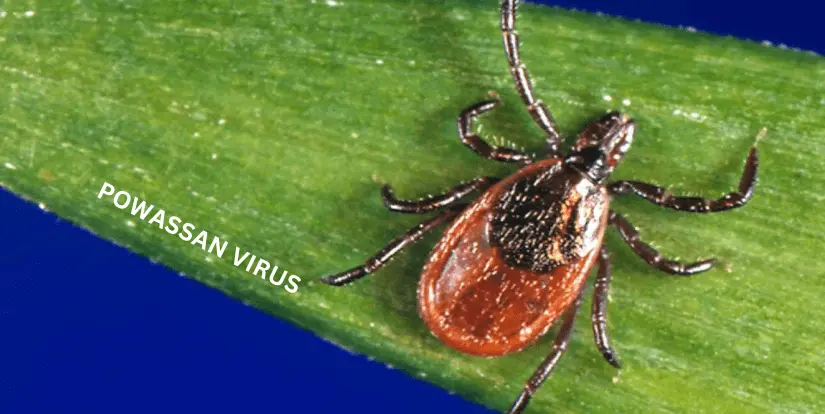Powassan Virus: 4 Confirmed Cases in Connecticut, CT

In a concerning development, health officials in Connecticut have confirmed four cases of the Powassan virus this year. This tick-borne illness has raised alarms, particularly as it can lead to severe health complications.
The Powassan Virus Emerges
The Department of Public Health (DPH) in Connecticut recently made a troubling announcement. Four residents of the state have tested positive for the Powassan virus, or POWV, a tick-borne virus known for its potentially severe consequences.
In these cases, two men aged 60 years and older lived in Middlesex and Litchfield counties. These individuals fell ill in early July. The other two cases involved female patients aged 50 years and older from Windham and Litchfield counties, who became ill in late July.
Confirming the Powassan Virus Diagnosis
To confirm the presence of the Powassan virus, the Centers for Disease Control and Prevention Laboratory in Ft. Collins, CO, conducted laboratory tests. These tests revealed the presence of antibodies to POWV in all the patients.
Each patient who had a known tick bite reported it and the hospital admitted them with a central nervous system disease. Fortunately, they have since been discharged, and they are on the path to recovery.
The Importance of Vigilance
DPH Commissioner Manisha Juthani, MD, stressed the importance of taking action to protect oneself from tick bites, especially from now through the late fall.
She recommended using insect repellent, avoiding areas where ticks are likely to be present, and performing thorough tick checks after spending time outdoors. These precautions can significantly reduce the risk of infection.
Also Read, 4000 Daily Steps Linked to Reduced Death Risk
The Rising Tick Threat
Dr. Goudarz Molaei, a chief scientist and director of the Connecticut Tick and Tick-borne Pathogen Surveillance Program at the Connecticut Agricultural Experiment Station, shed light on the growing tick threat.
In recent years, Connecticut has witnessed a surge in tick submissions, with 2023 already seeing 4,616 submissions, including 3,089 black-legged ticks. In 2022, there were 1,889 black-legged tick submissions. On comparison, this represents a substantial increase.
Dr. Molaei also noted the expansion of invasive tick species, including the Asian long-horned tick, the Gulf Coast tick, and the lone star tick. The emergence of these ticks, coupled with the confirmation of four Powassan virus cases, underscores the mounting public health challenges posed by ticks and tick-borne diseases.
The Historical Perspective
The DPH reported that from 2016 to 2022, Connecticut documented 19 cases of POWV-associated illness, including six cases in 2022.
Tragically, two of these cases from last year proved fatal. Infected black-legged or deer ticks primarily transmit the Powassan virus to humans through their bites.
Typically, the disease symptoms manifest within one week to one month after a tick bite, and, alarmingly, the virus can transmit in as little as 15 minutes after the tick attaches itself.
The Unpredictable Nature of Powassan
Reported cases of Powassan virus-associated illness have left residents vulnerable for an extended period, occurring from early spring to late fall. While many infected individuals experience no symptoms or a mild flu-like illness, a portion may develop severe illness that affects the central nervous system.
Shockingly, approximately one out of ten severe cases proves fatal, and about half of the survivors experience long-term health problems. Severe cases can start with seemingly benign symptoms like fever, vomiting, headache, or weakness but may rapidly progress to confusion, loss of coordination, difficulty speaking, or seizures.
A Stark Reality: No Vaccine, No Specific Treatment
Currently, there is no vaccine for Powassan virus-associated illness. Treatment for severe cases primarily consists of supportive therapy, which may include hospitalization, respiratory support, and hydration.
With no specific antiviral medication for this disease, prevention through tick avoidance remains the best course of action.
Conclusion
The confirmation of four Powassan virus cases in Connecticut serves as a stark reminder of the growing threat posed by tick-borne illnesses.
Connecticut witnesses an increase in tick populations and the expansion of invasive tick species. Residents need to take proactive measures to protect themselves from tick bites. Vigilance and precautionary steps can be the key to staying safe from this potentially severe illness.
Frequently Asked Questions – FAQs
What is the Powassan virus, and how is it transmitted?
The tick-borne virus Powassan virus infects humans when infected black-legged or deer ticks bite them.
What are the symptoms of Powassan virus-associated illness?
Symptoms can range from mild flu-like symptoms to severe central nervous system complications, including confusion and seizures.
Is there a vaccine for the Powassan virus?
At present, no vaccine exists for Powassan virus-associated illness.
How can I protect myself from the Powassan virus?
Protect yourself by using insect repellent, avoiding tick-prone areas, and conducting thorough tick checks after outdoor activities.
What should I do if I suspect a Powassan virus infection?
If you suspect infection or experience severe symptoms, seek medical attention promptly. Treatment typically involves supportive care.
